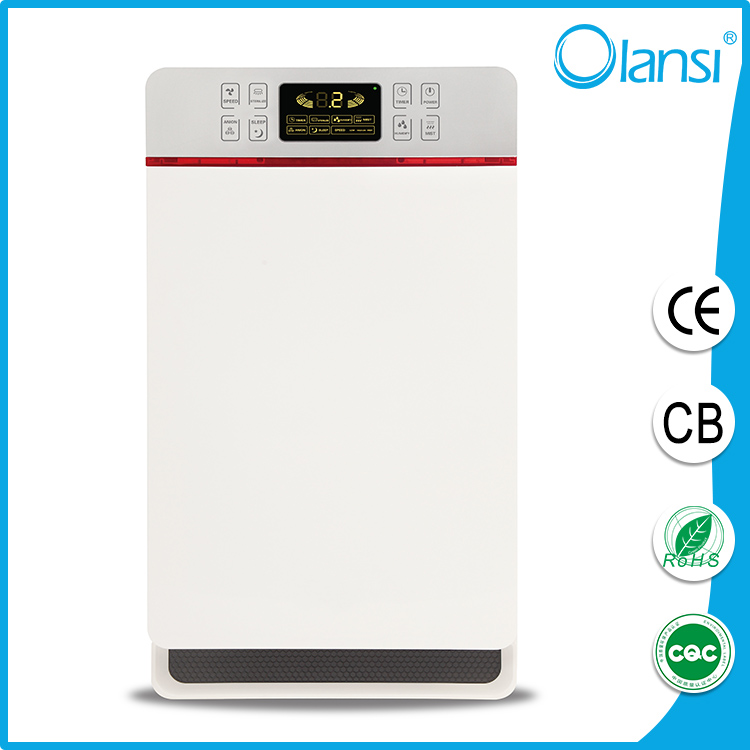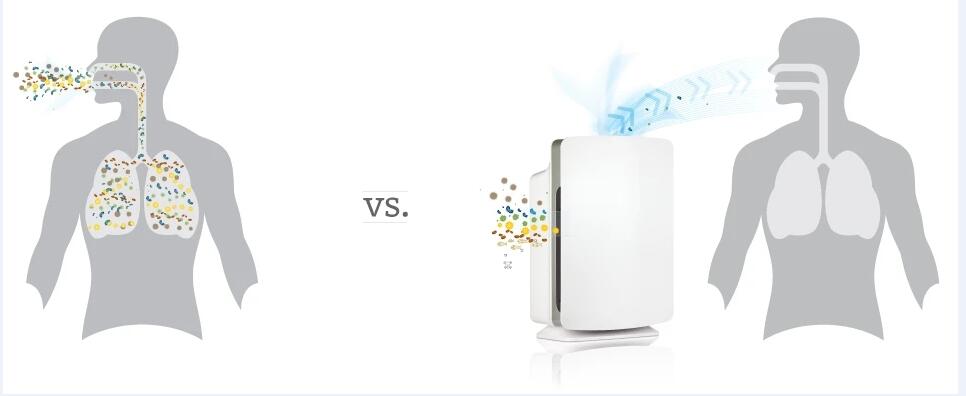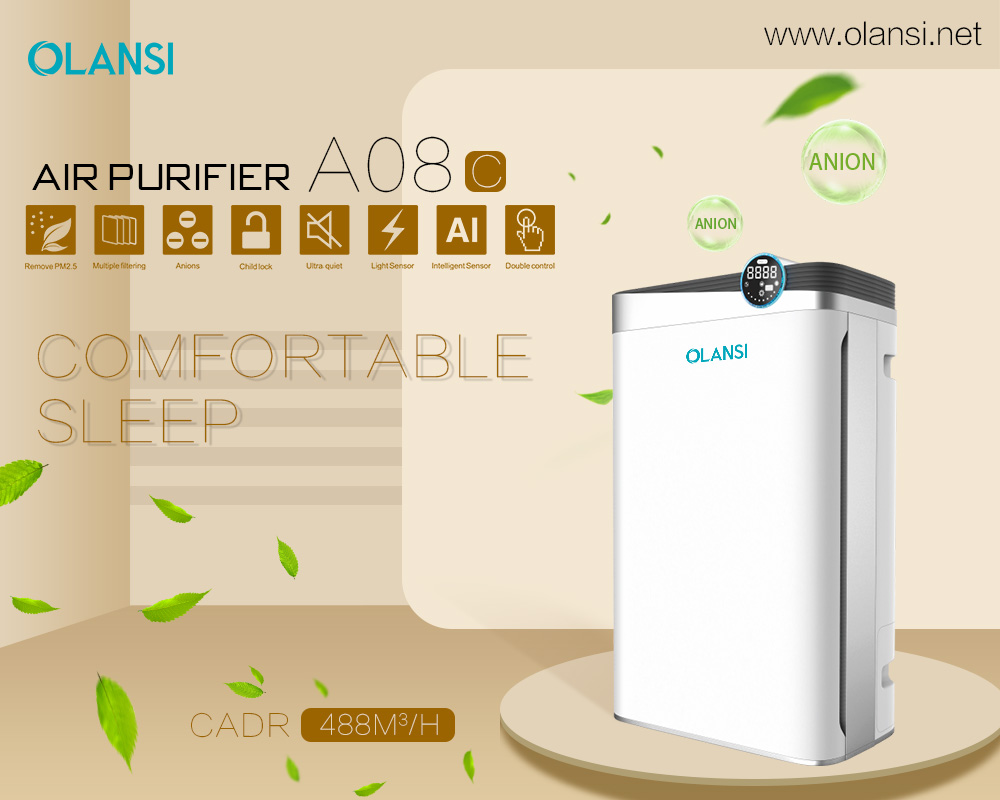Does Home Air Purifiers Really Work?
Does the EPA Advocate the Use of Home Air Purifiers?
To reduce the contaminants that lower air quality in the home, the Environmental Protection Agency first and foremost recommends minimizing or eliminating the sources of the pollution and increasing ventilation in order to replace bad air with good.
“[Air purifiers] may help control the levels of airborne particles including those associated with allergens.” – United States Environment Protection Agency (August 2009)
However, there are limitations to how much of each of these you can effectively do. Some pollution sources can be easily dealt with, but others cannot. Opening windows to increase air circulation is not always a convenient option, and as the Association of Home Appliance Manufacturers points out, ventilation is relatively poor in many modern homes, as they were designed to be “energy efficient” by reducing airflow to and from the outdoors as much as possible. The EPA therefore also recommends the use of air purifiers to supplement these other avenues of cleaning indoor air.
Understanding the Limitations of Air Purifiers
It is important to understand and accept the limitations of air purifiers in order to comprehend their usefulness. The EPA emphasizes that air cleaners are not meant to be a substitute for the other two methods of cleaning your home’s air described above. However, in conjunction with them, the EPA says that air purifiers “may help control the levels of airborne particles including those associated with allergens.”
Most air cleaners are not effective at removing unwanted gases, being designed instead to target unhealthy particles floating in the air. Among these particles, the relatively larger ones are often missed by the air cleaner because gravity pulls them to the ground more quickly than smaller particles, keeping them out of the purifier’s reach.
Therefore, no one should ever expect air cleaners alone to have a significant impact onindoor air quality. Nevertheless, a high-quality air cleaner can be used to improve certain aspects the air you breathe in your home, and can be an important part of your overall air-purifying strategy.
The Effectiveness of Air Cleaners
The main function of most air cleaners, therefore, is combating smaller contaminating particles. Research has shown that good air purifiers, even those of the smaller, portable variety, are up to 90% effective in reducing these smaller particles, such as those caused by cat dander and dust mites.
The EPA has certain recommendations regarding the use of portable air purifiers. In order to achieve maximum effectiveness, the portable air cleaner should be placed somewhere away from walls or other obstructions and positioned in such a way that the clean air is blown into open, occupied areas. If there is some specific source of pollution, the purifier should be placed nearby. Such purifiers work far better when all doors and windows of the room in which they are located are closed.
- Do Air Purifiers Work For Mold Removal? – Partially. Some air purifiers may effectively remove mold particles from the air but are ineffective against killing mold spores. Spores are typically resistant even to UV light treatment. However, if spores become trapped in a filter, this does keep them from proliferating in your home. Careful and proper disposal of used filters is essential. We recommend changing filters outside your home to prevent unwanted release of trapped particles and spores.
- Do Air Purifiers Work For Pet Allergies? – Partially. Some air purifiers can remove pet hair and dander trapped in the air. However, heavier pet dander particles often fall out of the air column and settle onto surfaces. Frequent cleaning is recommended. Also, keep pets out of sleeping areas to avoid contact with pet dander throughout the night and other sleeping times.
- Do Air Purifiers Help With Hay Fever?– Depends on the source of your hay fever allergy. According to the Mayo Clinic, hay fever can be caused by various pollens, fungi and mold spores, dust mites or cockroaches, and pet dander. Air purifiers range in their effectiveness of cleaning the air of these particles depending on model type. Air purifiers are most effective at reducing pollen particles in the air column and are recommended by the Mayo Clinic. Dust mite feces, cockroach body parts and pet dander are typically heavier particles that fall out of the air column and must be cleaned from surfaces. Use allergen covers on bedding and pillows to protect against the most common exposure to dust mites. Keep pets out of sleeping areas. Use HEPA filter equipped vacuums to clean surfaces.
Summary
In conclusion, air purifiers, while not sufficient to deal with all the hazards of indoor air pollution on their own, are a useful tool which should not be overlooked by anyone interested in keeping his or her home’s air as clean as possible. When the air purifier is of good quality and used effectively, it has an important role to play in the fight against the toxins and irritants that infest our inside air.
- Air purifiers are most effective at removing particles that remain trapped in the air column such as various pollens, dust, and some molds
- Air purifiers are not very effective with dust mite allergies since these allergens tend to remain on surfaces like pillows, bedding, furniture etc.
- Air purifiers have mixed results with pet allergens due to these particles not always remaining long enough in the air column to be filtered effectively
- Air purifiers are one solution to providing healthy indoor air and should be used in conjunction with other methods





